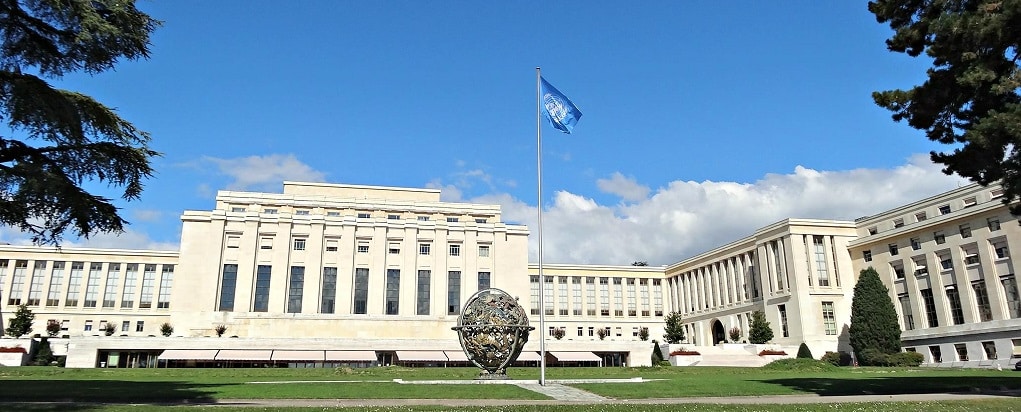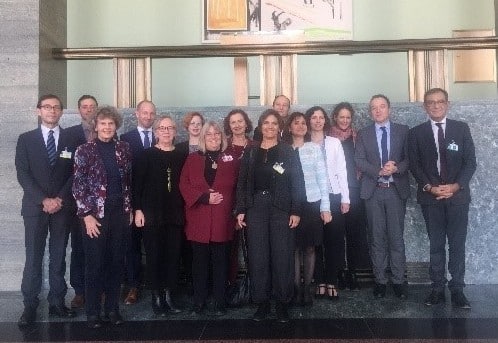
UNECE headquarters, Geneva
Population ageing has been recognised by the United Nations as one of the four global demographic megatrends together with population growth, international migration and urbanization. In that context, Member States must address the demographic change in a more comprehensive and coherent way with other key challenges. One way of doing this is to bring closer national actions on ageing taken in the framwork of the International Action Plan for Action on Ageing (MIPAA) to the Agenda 2030 and the Sustainable Development Goals (SDGs). This was discussed last November in Geneva.
Fight against ageism, mainstreaming ageing in national policy making and the progress in the implementation of the Madrid International Plan for Action on Ageing (MIPAA) were the major issues discussed at the 12th session of Working Group on Ageing (WGA) of the United Nations’ Economic Commission for Europe’s (UNECE)[1] held on 18-19 November 2019 in Geneva. AGE takes part in annual meetings of the WGA together with other civil society organisations (NGOs) accredited to the UNECE. At the last meeting, our Vice-President, Dr Heidrun Mollenkopf has been elected NGO representative to the UNECE WGA Bureau for the period 2019-2021.
Building synergies

Later in 2020, AGE will launch an internal assessment of the MIPAA/RIS 2018-2022 – similarly to our extensive contribution to the last MIPAA review in 2017 – see here.

NGOs join forces against UNECE budget cut
Finally, we were informed about the plans for an UNECE 2020 budget which has unfortunately targeted the abolition of a post related to ageing issues. In response, AGE together with other UNECE NGOs decided to address a letter urging member states of the ECE to request that their counterparts in the UN Fifth Committee – currently reviewing the Secretary-General’s proposed programme budget – to insist on the reinstatement of that budget post.
Supporting informal carers

Read here UNECE’s policy brief on the challenging roles of informal carers.
Read also:
- AGE addresses the global 2030 Agenda for Sustainable Development from an old-age perspective at UNECE Regional Forum in Geneva
- AGE highlights challenges on the implementation of Sustainable Development Goals at UNECE Working Group on Ageing
- NGOs publish joint declaration ahead of UNECE Ministerial Conference on Ageing
For more information on the UNECE WGA and its 12th session, please do not hesitate to contact Maciej Kucharczyk: maciej.kucharczyk@age-platform.eu
[1] The UN-ECE Working Group on Ageing is an intergovernmental body made up of national focal points on ageing representing member states of the United Nations Economic Commission for Europe region, along with representatives from international organizations, NGOs and academia.






